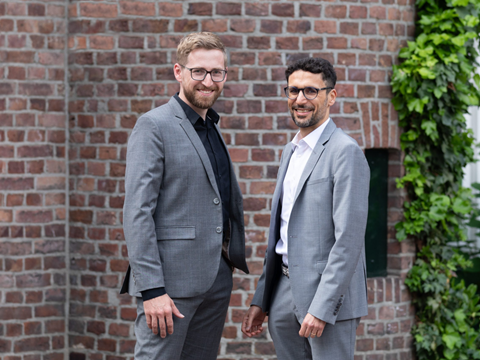
Aiming to advance polyamide-based packaging and apply fact-based sustainability assessment to flexible materials, BASF, UBE, Envalior, DOMO Chemicals, and Grupa Azoty ATT Polymers have formed the non-profit Advanced Packaging Association (APA).
Key players in the polymer industry initiated the Association in 2023. Now the organization intends to prove the value of polyamide as a high-performance, recyclable packaging material with factual evidence and new solutions – an effort it hopes will assist in the sustainable transition.
Apparently, polyamide is ‘inherently respectful of the waste hierarchy’ and has been a ‘key material’ in advanced packaging for ‘decades’. APA believes that it unlocks high performance with minimal raw material consumption and ‘the best’ value for money – helping to protect perishables and reduce food waste.
According to UBE, the material helps lightweight packaging designs and cut down on carbon footprints. It is said to offer mechanical strength, flexibility, toughness, and heat resistance.
Furthermore, barrier properties against oxygen, light, and moisture are all expected to save the freshness; while protection against chemicals, gas, and aromas are expected to prevent food products from becoming contaminated.
APA members hope that, based on data and scientific evaluation, polyamide-based packaging will be considered recyclable and sustainable by 2027. Polyethylene/polyamide packaging has already been proven through various protocols, they say, but the Association ‘will continue to promote the positive contributions of this thinner and more robust packaging’.
It intends to bring together stakeholders from across the flexible packaging value chain to share knowledge and promote the benefits of polyamide amongst policymakers and the packaging industry.
APA president Nicola Bucchioni commented: “APA invites all actors in the value chain (including film producers, packaging converters, machinery manufacturers, recyclers, packaging initiatives, brand owners/food producers, retailers, private individuals) to join forces to confirm high performance packaging solutions as the most reasonable options to achieve food and plastic savings, or in other words, the best possible sustainability and circularity in advanced packaging. Join us in this noble and meaningful mission.”
Vice president Paul Neumann added: “Moving packaging design towards the use of a single material sounds like the perfect solution for packaging recyclability. In reality, it overlooks the real functionality of packaging – to protect valuable goods in the best possible way while using as little raw material as possible.
“Combining optimized functionality and minimized raw material use with recyclable packaging designs can be done with advanced packaging. APA is committed to delivering these valuable data-driven messages to the relevant stakeholders in industry and government.”
Some packaging designs have already begun to utilize polyamide. BASF previously worked with StePac to implement Ultramid Ccycled polyamide 6 into contact-sensitive packaging for fresh produce. First utilized by passionfruit exporter Jardin Exotics, the film was hoped to slow the ripening process of the fruits as they were delivered to Europe.
However, as mentioned in a previous edition of The Brief, between 75 and 88 pounds of flexible waste is estimated to be generated in the United States every year – but only 1% of it can be recycled at home, according to the Recycling Partnership. In the UK, only 6% of soft plastics are washed, shredded, melted, and filtered for impurities in the recycling process.
The European Council has also provisionally agreed on a set of rules within the Packaging and Packaging Waste Regulation; with suggested packaging reduction targets of 5% by 2030, 10% by 2035, and 15% by 2040, EU Member States are expected to reduce their plastic packaging waste in particular.
Flexible Packaging Europe recently noted that, although flexible packaging prices in Europe are ‘well below’ the levels at the start of 2023, they have undergone ‘modest’ increases in the first quarter of 2024. This has been linked to shipping disruptions in the Red Sea stemming from ‘escalating tensions’ in the Middle East.
If you liked this story, you might also enjoy:
How are the top brands progressing on packaging sustainability?
The ultimate guide to global plastic sustainability regulation














No comments yet